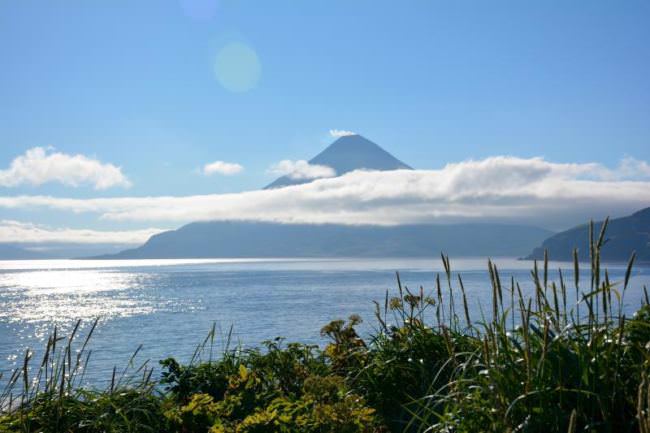
Extreme weather has caused chaos recently in places like Puerto Rico and Texas. But to better understand how humans react to these types of events, one historian is looking at the distant past.
Joseph Manning says if you want to study past climate events, ancient Egypt is a good place to start.
The Egyptians kept detailed records. There was everyday bookkeeping on crops, land leases, letters and legal documents, usually written on papyrus.
And Manning says a lot of that has survived.
“Well, ironically because of the dryness of Egypt but also the fondness for mummification, which is interesting,” Manning said. “So a lot of documents get recycled as mummy wrappings or mummy stuffing sacred animals and human.”
As odd as that may seem, some of these old records were found in the body cavities of mummies.
But when you look at the documents as a whole, Manning says a story starts to emerge and it’s one that includes Alaska.
As a history professor at Yale University, Manning studies the Ptolemaic Period. You probably know it as a time when Cleopatra reigned as queen. But to historians, it’s a period marked by social unrest and revolts.
That’s been linked, in part, to changes in the Nile River. The river didn’t flood for two to three years, which meant crops didn’t get vital nutrients and irrigation.
“People recall a time in the past when there was widespread famine, and they worried that might happen again,” Manning said.
But Manning says an important part of the story was missing — what caused the Nile to stop flooding every year?
So Manning looked for scientists to compare notes. He remembers a colleague showing him a newly published paper on volcanic eruptions.
“I told him the sort of dates I was interested in and they kind of lined up in a spooky sort of way, I would say,” Manning said. “And then we got to work.”
Beyond the historical documents, like the mummy wrappings and exact measurements of the Nile, Manning teamed up with scientists to examine what he calls “natural archives.” That is, layers of ice thousands of years of old.
Below the surface of the ice is a record of major climatic events. Scientists can pull up core samples and test it for particulates that may have been deposited from a distant volcano.
And Manning was able to use that data, comparing volcanic activity with the timeline.
“You can tell specific eruptions, you can tell approximately where the eruption is located, and you can tell the size of the eruption which also matters,” Manning said.
What they found was volcanoes in Iceland, Alaska and possibly Russia were erupting around the same time the Nile River was thrown out of whack.
Manning says large volcanic eruptions can cause cooling and drought.
In the case of the Nile River, the eruption may have caused less rain to fall in Ethiopia so the Nile didn’t flood. That, in turn, set off a chain of tumultuous events, that would have been impossible for ancient Egyptians to comprehend.
“Egyptians have no idea there’s a volcano in Alaska,” Manning said.
Manning says scientists have posed the volcano theory before. But this kind of approach is a new way of understanding how history and climate are connected.
“For the first time you can see a dynamic society,” Manning said. “It’s like pulling a curtain back and actually seeing a society moving around as opposed to a static picture of an ancient society.”
Manning thinks today, as we see weather shifts caused by warming and human activity, we can learn something from the past.
The ancient Egyptians can help us understand how environmental change influences behavior and potentially leads to political unrest or war. He says there are skeptics to this approach.
Some other historians have pushed back, saying the research is short sighted.
“Actually I’ve seen some people say we’re part of a fad,” Manning said. “Climate change is such a fad these days that will pass.”
But Manning doesn’t think so. Unlike ancient times, he says we have some control over how things play out. We can reduce carbon emissions and imagine solutions.
Manning wonders what the Egyptians would have done with the same knowledge.




